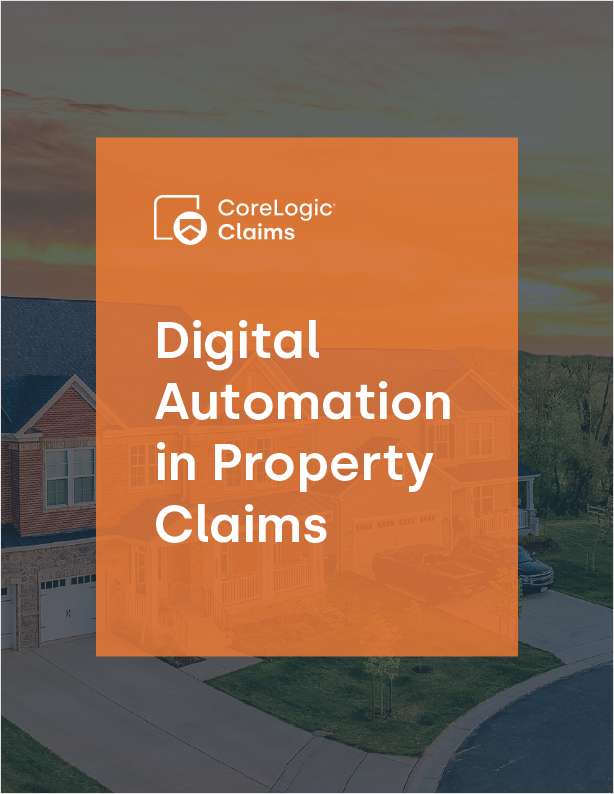SCOTUS Ruling on Standard of Proof in Certain Race Discrimination Claims Will Have Limited Impact in Connecticut
Must race merely be a "motivating factor," or does it need to be a "determinative factor"?
March 30, 2020 at 04:57 PM
6 minute read
 Joshua R. Goodbaum, partner with Garrison, Levin-Epstein, Fitzgerald & Pirrotti, P.C.
Joshua R. Goodbaum, partner with Garrison, Levin-Epstein, Fitzgerald & Pirrotti, P.C.
Covid-19 has unsettled virtually every institution in American life, and the courts unfortunately are no exception. The federal and state courthouses in Connecticut have largely closed to the public, although they remain "open for business," at least in a virtual sense. And this judicial tumult has climbed all the way to the hallowed halls of the U.S. Supreme Court, which has indefinitely postponed oral arguments it previously scheduled for March and April 2020—including in several newsworthy cases, such as disputes about President Trump's tax returns. But like the Postal Service, neither rain, nor snow, nor sleet, nor apparently Covid-19 will stop the Supreme Court from issuing opinions.
And so this past Monday, March 23, the court issued opinions in five cases argued earlier in its 2019 Term. Of those five, the most relevant for employment and civil rights lawyers is the court's opinion in Comcast Corp. v. National Ass'n of African American-Owned Media (No. 18-1171).
The case began with African American media entrepreneur Byron Allen and his company, Entertainment Studios Network (ESN), who tried for years—without success—to get Comcast to carry ESN's programming. Apparently convinced that Comcast's refusal was a product of his race, Allen sued Comcast in federal court in California. He claimed that Comcast's refusal to negotiate with ESN violated the first section of the Civil Rights Act of 1866, a Reconstruction-era law which provides that "[a]ll persons . . . shall have the same right . . . to make and enforce contracts . . . as is enjoyed by white citizens." 42 USC § 1981(a). The legal issue presented to the Supreme Court concerned the standard of proof necessary for a plaintiff to prevail under § 1981: Does the plaintiff only have to show that his race played "some role" in the defendant's action, or does the plaintiff instead have to make the more difficult showing that his race was a "but-for" cause of the defendant's action? In other words, must race merely be a "motivating factor," or does it need to be a "determinative factor"?
By way of background, civil rights laws generally require as a standard of proof either "motivating factor" or "determinative factor." The landmark federal employment discrimination law—Title VII of the Civil Rights Act of 1964—illustrates this distinction. In order for an employee to prevail under Title VII, she must show that her race (or sex or religion or national origin) was a "motivating factor" of her employer's adverse action—meaning that her race played "some role" in her employer's action against her. However, the employer then may seek to establish as an affirmative defense that it would have taken the same action even absent the protected characteristic—that is, that the employee's protected characteristic was not a "determinative factor" of the action. And "determinative factor," in turn, is just another way of saying "but-for" cause—something without which the challenged action would not have occurred.
Over the last 15 years, the Supreme Court has promoted "determinative factor" as the definitive standard of proof in federal civil rights law. That is the conventional wisdom after the court's opinions in Gross (2009) (about the Age Discrimination in Employment Act) and Nassar (2013) (about Title VII's anti-retaliation provision): if the statute prohibits an employer's action "because of" an employee's protected characteristic or conduct, then the plaintiff will need to satisfy the "determinative factor" test. But what happens when the statutory text does not say the words "because of," such as in § 1981? What standard of proof governs then?
In the Comcast case, in an opinion authored by Justice Gorsuch, the court unanimously holds that the § 1981 plaintiff still has to satisfy the "because of" test—that is, that a defendant violates the statute only when the plaintiff's race is at least one "but-for" cause of the defendant's challenged action. The court reaches that conclusion based on the text of the statute, reasoning that the explicit comparison to "white citizens" means that the plaintiff has to show that race made a difference in the defendant's actions. The court relies further on what it describes as the "'textbook tort law' that a plaintiff seeking redress for a defendant's legal wrong typically must prove but-for causation."
Although Comcast is certainly not helpful to employees pursuing claims under § 1981, it is not a death knell either, for at least a few reasons. To start, we should avoid exaggerating the burden that the "but-for" standard imposes. The default rule in tort cases (as the court noted), but-for causation simply means a cause that made a difference. Race—in the case of a § 1981 claim—can be one of many causes of a defendant's challenged action; as long as it is one cause-in-fact, it is actionable. Indeed, as no less a friend of corporate defendants than Chief Justice Roberts proclaimed in 2011, but-for causation is practically "no limit at all."
Even under federal law, though, employees who allege race discrimination can still seek a remedy under Title VII, where they only need to prove that their race was a "motivating factor," not a "determinative" one. (Note, however, that Title VII caps awards of non-economic damages, which § 1981 does not.) Likewise, under our state's law, the prohibition on employment discrimination and retaliation enshrined in the Connecticut Fair Employment Practices Act only requires proof of a "motivating factor."
The U.S. Supreme Court will take another crack at standards of proof in employment cases later this Term when it hands down its decision in Babb v. Wilkie, which asks essentially the same question as Comcast, albeit about the federal employee section of the Age Discrimination in Employment Act. No one should be surprised if the Babb decision offers the same result as the Comcast one. But no one who cares about the rights of Connecticut's employees should panic either.
This content has been archived. It is available through our partners, LexisNexis® and Bloomberg Law.
To view this content, please continue to their sites.
Not a Lexis Subscriber?
Subscribe Now
Not a Bloomberg Law Subscriber?
Subscribe Now
NOT FOR REPRINT
© 2025 ALM Global, LLC, All Rights Reserved. Request academic re-use from www.copyright.com. All other uses, submit a request to [email protected]. For more information visit Asset & Logo Licensing.
You Might Like
View All
ADVANCE Act Offers Conn. Opportunity to Enhance Carbon-Free Energy and Improve Reliability With Advanced Nuclear Technologies

Trending Stories
- 1Ex-Starbucks GC Exiting Latest Role, Will Get Severance
- 2Family Law Special Section 2025
- 3We Must Uphold the Rights of Immigrant Students
- 4Orrick Picks Up 13-Lawyer Tech, VC Group From Gunderson Dettmer
- 5How Alzheimer’s and Other Cognitive Diseases Affect Guardianship, POAs and Estate Planning
Who Got The Work
J. Brugh Lower of Gibbons has entered an appearance for industrial equipment supplier Devco Corporation in a pending trademark infringement lawsuit. The suit, accusing the defendant of selling knock-off Graco products, was filed Dec. 18 in New Jersey District Court by Rivkin Radler on behalf of Graco Inc. and Graco Minnesota. The case, assigned to U.S. District Judge Zahid N. Quraishi, is 3:24-cv-11294, Graco Inc. et al v. Devco Corporation.
Who Got The Work
Rebecca Maller-Stein and Kent A. Yalowitz of Arnold & Porter Kaye Scholer have entered their appearances for Hanaco Venture Capital and its executives, Lior Prosor and David Frankel, in a pending securities lawsuit. The action, filed on Dec. 24 in New York Southern District Court by Zell, Aron & Co. on behalf of Goldeneye Advisors, accuses the defendants of negligently and fraudulently managing the plaintiff's $1 million investment. The case, assigned to U.S. District Judge Vernon S. Broderick, is 1:24-cv-09918, Goldeneye Advisors, LLC v. Hanaco Venture Capital, Ltd. et al.
Who Got The Work
Attorneys from A&O Shearman has stepped in as defense counsel for Toronto-Dominion Bank and other defendants in a pending securities class action. The suit, filed Dec. 11 in New York Southern District Court by Bleichmar Fonti & Auld, accuses the defendants of concealing the bank's 'pervasive' deficiencies in regards to its compliance with the Bank Secrecy Act and the quality of its anti-money laundering controls. The case, assigned to U.S. District Judge Arun Subramanian, is 1:24-cv-09445, Gonzalez v. The Toronto-Dominion Bank et al.
Who Got The Work
Crown Castle International, a Pennsylvania company providing shared communications infrastructure, has turned to Luke D. Wolf of Gordon Rees Scully Mansukhani to fend off a pending breach-of-contract lawsuit. The court action, filed Nov. 25 in Michigan Eastern District Court by Hooper Hathaway PC on behalf of The Town Residences LLC, accuses Crown Castle of failing to transfer approximately $30,000 in utility payments from T-Mobile in breach of a roof-top lease and assignment agreement. The case, assigned to U.S. District Judge Susan K. Declercq, is 2:24-cv-13131, The Town Residences LLC v. T-Mobile US, Inc. et al.
Who Got The Work
Wilfred P. Coronato and Daniel M. Schwartz of McCarter & English have stepped in as defense counsel to Electrolux Home Products Inc. in a pending product liability lawsuit. The court action, filed Nov. 26 in New York Eastern District Court by Poulos Lopiccolo PC and Nagel Rice LLP on behalf of David Stern, alleges that the defendant's refrigerators’ drawers and shelving repeatedly break and fall apart within months after purchase. The case, assigned to U.S. District Judge Joan M. Azrack, is 2:24-cv-08204, Stern v. Electrolux Home Products, Inc.
Featured Firms
Law Offices of Gary Martin Hays & Associates, P.C.
(470) 294-1674
Law Offices of Mark E. Salomone
(857) 444-6468
Smith & Hassler
(713) 739-1250












